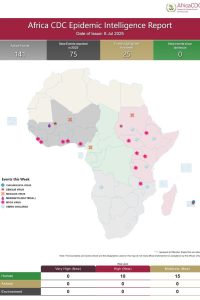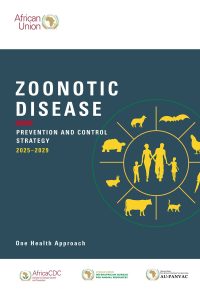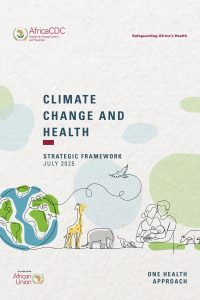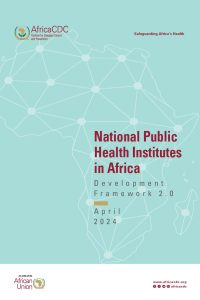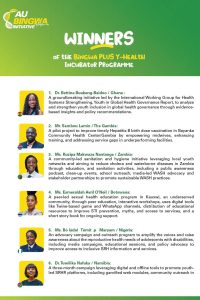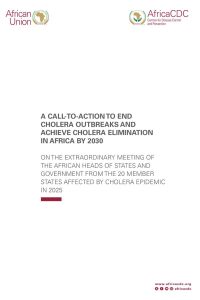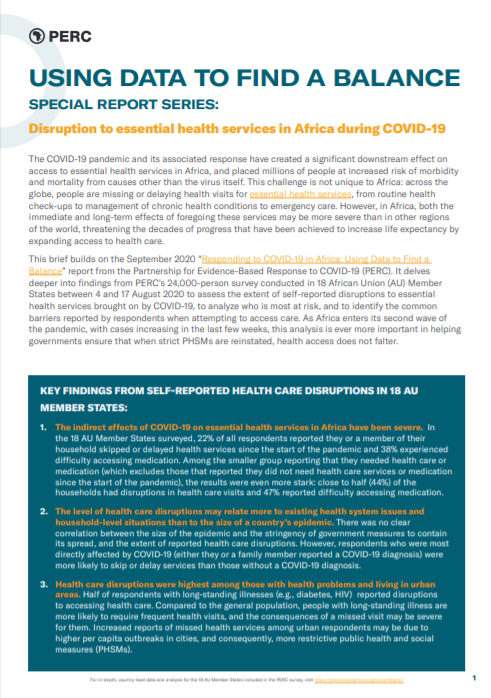
- Version
- Download 3254
- File Size 1.11 MB
- File Count 1
- Create Date 17 November 2020
- Last Updated 17 November 2020
USING DATA TO FIND A BALANCE: Disruption to essential health services in Africa during COVID-19
The COVID-19 pandemic and its associated response have created a significant downstream effect on access to essential health services in Africa, and placed millions of people at increased risk of morbidity and mortality from causes other than the virus itself. This challenge is not unique to Africa: across the globe, people are missing or delaying health visits for essential health services, from routine health
check-ups to management of chronic health conditions to emergency care. However, in Africa, both the immediate and long-term effects of foregoing these services may be more severe than in other regions of the world, threatening the decades of progress that have been achieved to increase life expectancy by expanding access to health care.
This brief builds on the September 2020 “Responding to COVID-19 in Africa: Using Data to Find a Balance” report from the Partnership for Evidence-Based Response to COVID-19 (PERC). It delves deeper into findings from PERC’s 24,000-person survey conducted in 18 African Union (AU) Member States between 4 and 17 August 2020 to assess the extent of self-reported disruptions to essential health services brought on by COVID-19, to analyze who is most at risk, and to identify the common barriers reported by respondents when attempting to access care. As Africa enters its second wave of the pandemic, with cases increasing in the last few weeks, this analysis is ever more important in helping governments ensure that when strict PHSMs are reinstated, health access does not falter.
Attached Files
| File | Action |
|---|---|
| PERC - Brief Essential health Services - Special Report_1120 | Download |

